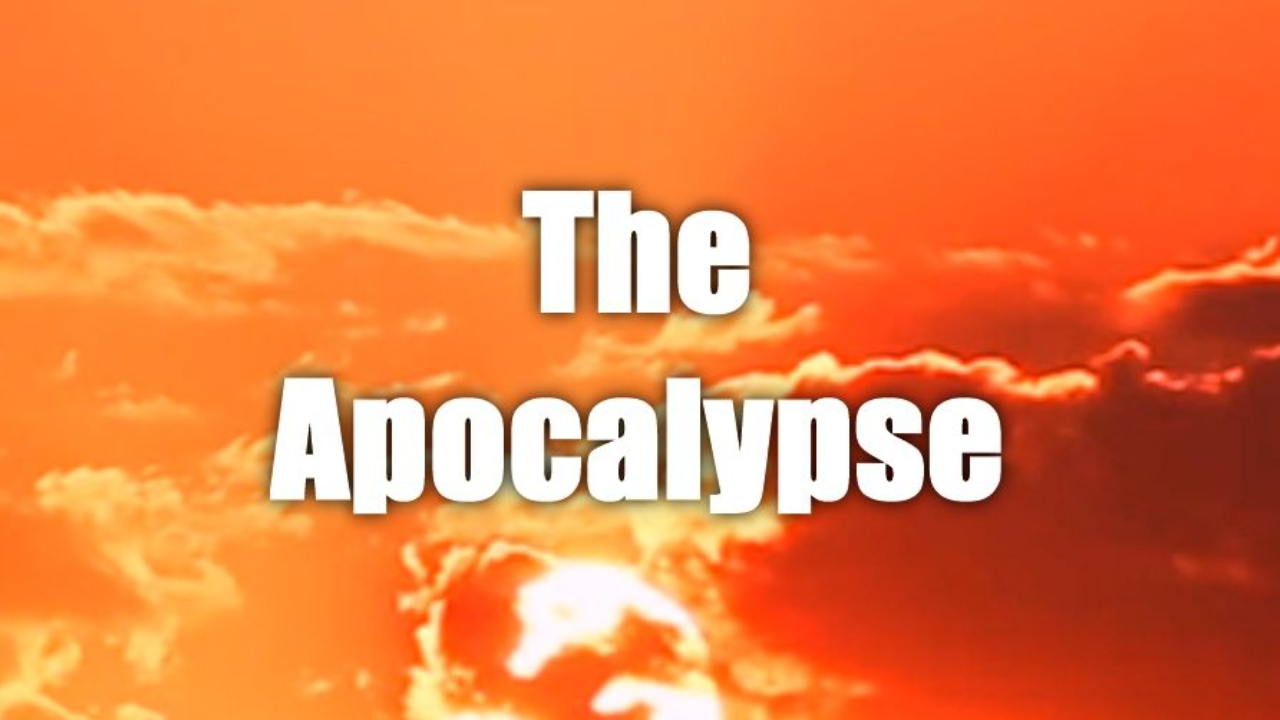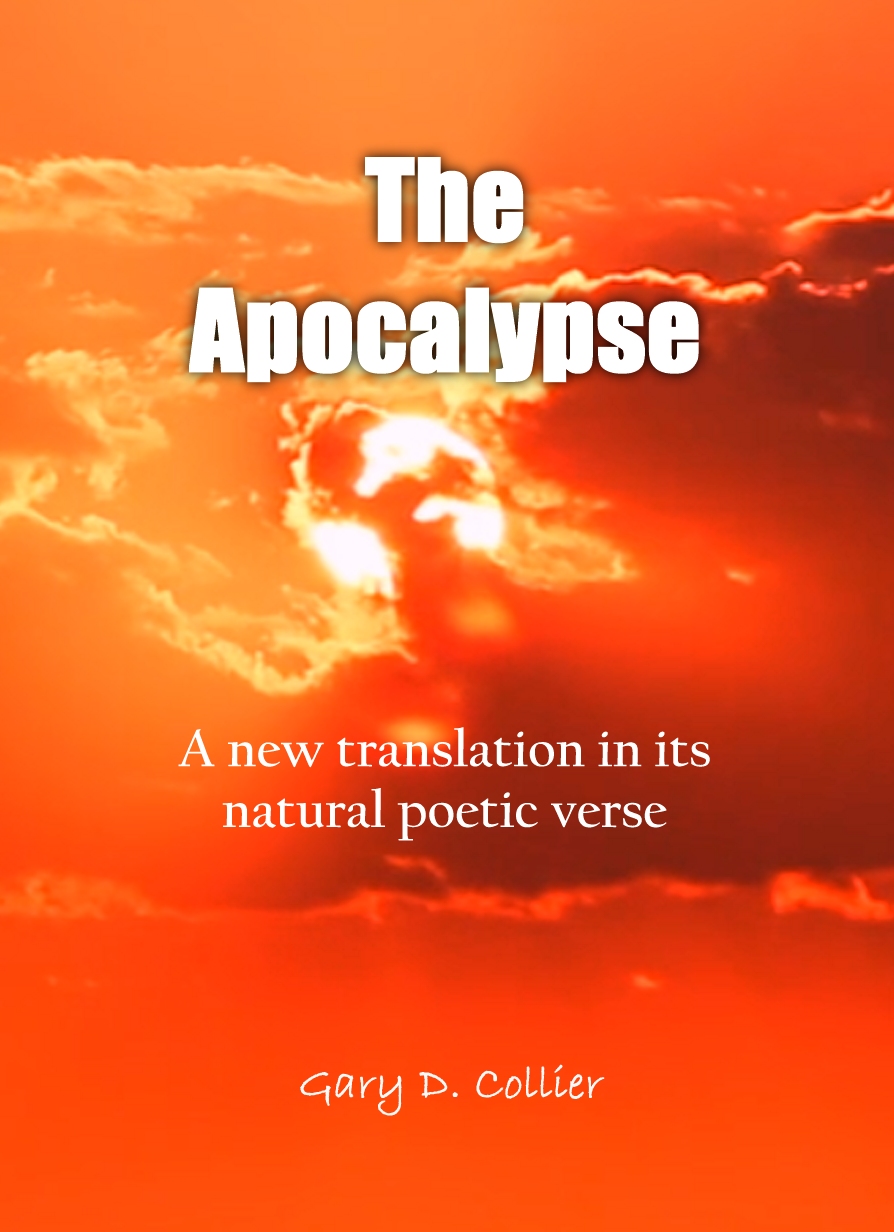
Is Revelation Poetry?
Aug 18, 2023Note: this post is an early version of the introduction of a new translation of the Apocalypse now available only for private sale (by personal request), or as a promotional gift under the following title:

This post announces a new translation of the book of Revelation that will allow readers to consider the book from a very interesting perspective: Revelation as a Poetic Text. This translation, along with translation notes and vocabulary, .
The Language of Revelation
The book of Revelation identifies itself as a letter (1:4, 22:21), an Apocalypse (1:1), and prophecy (1:3; 11:6; 19:10; 22:7, 10, 18, 19) that is intended to be read aloud to hearers (1:3). Although similar to its OT antecedents (Isaiah, Ezekiel, Daniel, et al), Revelation has a fairly unique, but decidedly poetic style.
For quite a long time, biblical scholars have somewhat rabidly attended to the question of "the language of the Apocalypse," arguing one of three things: (1) Revelation was originally Aramaic or Hebrew and so is translated Greek; or (2) the writer made inadvertent mistakes in Greek; or (3) the writer spoke in a common or localized Greek (i.e., a kind of "ghetto Greek"). The debate is quite detailed and complicated and it is not my intention to summarize it further, or to engage or challenge it.
For the debate, see especially these three resources: Laurențiu Moț, Morphological and Syntactical Irregularities in the Book of Revelation: A Greek Hypothesis (Linguistic Biblical Studies) Brill (2015); A.D. Callahan "The Language of Apocalypse" HTR 88:4 (1995):469-70; and Stanley Porter, "The Language of the Apocalypse in Recent Discussion," NTS 35:4 (1989): 582-603.
I will, however, repeat a couple of very interesting quotes, both of which are complaining about the language of Revelation:
From the 3rd century CE:
I observe his [the seer's] style and that his use of the Greek language is not accurate, but that he employs barbarous idioms, in some places committing downright solecisms [i.e., grammatical mistakes]. [Dionysios of Alexandria quoted in Eusebius]
From 1522:
Moreover, he [the seer] seems to be going much too far when he commends his own book so highly more than any of the other sacred books do, though they are much more important; and he threatens that if anyone takes away anything from it, God will deal likewise with him. Again, they are to be blessed who keep what is written therein; and yet no one knows what that is, to say nothing of keeping it. [Works of Martin Luther (6 vols.; ed. Henry Jacobs et al.; 1932; reprinted Grand Rapids: Baker, 1982) 6. 489.]
[Both of these are repeated from A.D. Callahan "The Language of Apocalypse" HTR 88:4(1995):469-70.]
-----------------------------------------------------
The point is, readers have long noted that the Greek language of Revelation is not what might be expected. English readers won't usually have any idea about such things, and they often won't care about them. All they know is that, in English, it's "The Book of Revelation, last book of the Bible." And the translations of this book are almost always highly polished translations with any rough edges smoothed out. So how would English readers know?
But Is It Poetry?
Again, how would English readers know? They might, in fact, think this is a hostile question, designed to lower the importance of the book. Open any English translation of this book: does it look poetic to you? Some few parts, maybe; but most of it is in prose. Commentaries also tend not to discuss this aspect of its style, focusing instead on identifying the genre of the book as a letter, or apocalypse, or prophecy (see Aune 1:lxx-xc).
There have been exceptions. The book, The Apocalypse of John (Yale University Press) by C. C. Torrey was published in 1958, two years after his death at 93. A former Semitic-languages teacher for 40 years at Andover and later Yale, Torrey held that the writer of Revelation was, quite pointedly, a poet. He noted that this gets lost because English translations render the book almost entirely in prose.
English translations have continued rendering Revelation as prose, washing out most of the visual evidence of poetry. Clearly, this contributes (at least partially) to the insistence by some that Revelation must be read literally, as if headlines in today’s newspapers. So, at least some will object, feeling that poetry trivializes the power of the book.
However, to suggest that Revelation has a poetic style does not throw it under a bus of frivolity, as if I am proposing to read 9:1 as Twinkle, twinkle, little star! Nor should the very notion of poetic style be a surprise. William Franke adeptly notes that,
Texts explicitly claiming to deliver divine revelations [in all religions] have generally been highly and even consummately poetic texts.
The argument, here, is not that the style of Revelation is equivalent to Homeric or other classical Greek poetry, or even that it is identical to the Hebrew poetry found, say, in Daniel. Neither of these would be correct and is not the point. Even so, regardless of all the debates about the language of Revelation, the actual text of Revelation exhibits an apparent poetic syntactical style (i.e., word, phrase, and clause order) that is not sufficiently explained (or explained away) by any of the three concerns mentioned above under "Language." Any one of those things might be true, and Revelation still exhibits a kind of poetic style (even if it is seen as a rough poetic style). It appears to resemble at least some Hebrew poetic characteristics, especially as that is mediated through the Septuagint (the Greek OT)---which it is obvious that the writer of Revelation has spent a lot of time contemplating.
The fact that readers today might not understand the power and force of Greek or Hebrew poetry, or of that sort reflected in Revelation, says more about current-day readers than ancient literature. Hence, the goal, here, in this all-new translation of Revelation, is intentionally to challenge the typically prose approach to Revelation by respecting and preserving the poetic flow and syntax which show up line-by-line throughout the book.
Format & Style
So then, as to format:
(1) First, in the left column the Greek text will be laid out according to phrase mapping—a method that attends to “flow of thought,” especially to clauses, phrases, and other textual thought-units.
(2) Then, in the right column, a new English translation will respect and reflect that flow without merely producing a so-called “literal translation.” Hopefully, a careful reader will get a sense of the Greek style and poetic flow of Revelation through this translation.
This new translation is offered as a study aid, not as a highly finessed translation. Some sections might be more literal than others, and the translation will most certainly not feel as smooth as, say, the NIV or ESV. But that is not its goal. Instead, an attempt has been made to preserve the oft-occurring instances of parallel thought and poetic repetitions that exist throughout which often preserves a bit of roughness. This sometimes results in what might be termed uncomfortable English word order. While not offered as a replacement of anyone’s primary translation, this resource should be useful whether reading the book silently or aloud, or as a whole or in part.
For some off-the-cuff remarks about "Reading Revelation" watch this 9 minute video.
Gary D. Collier










